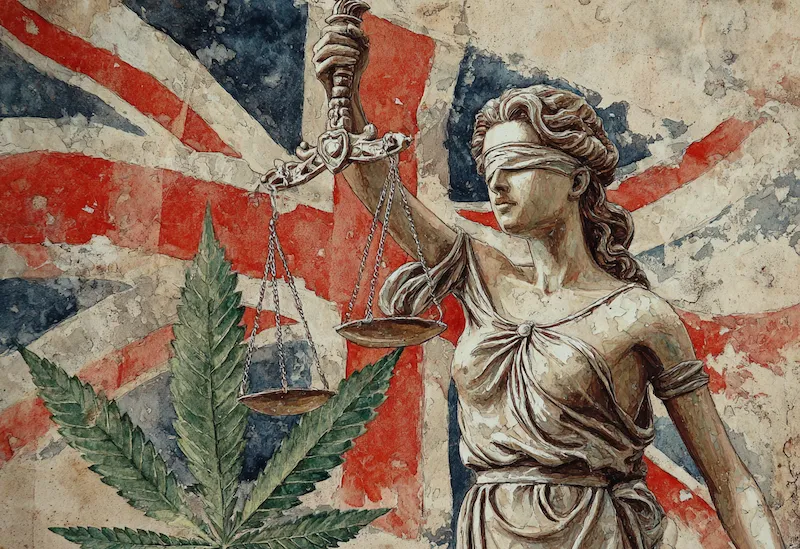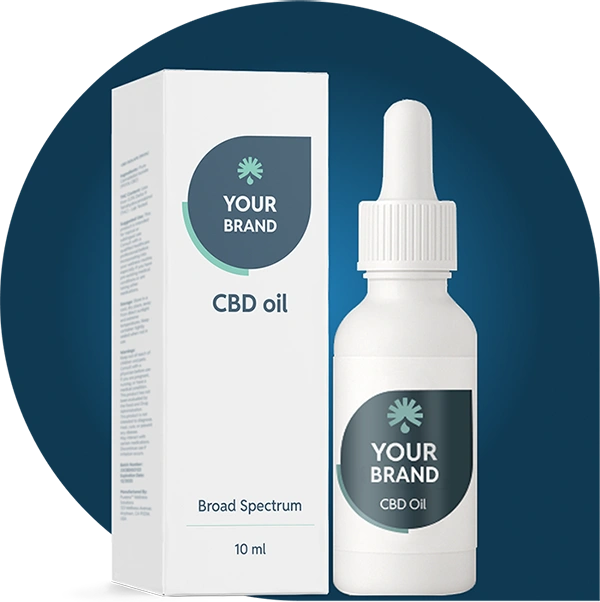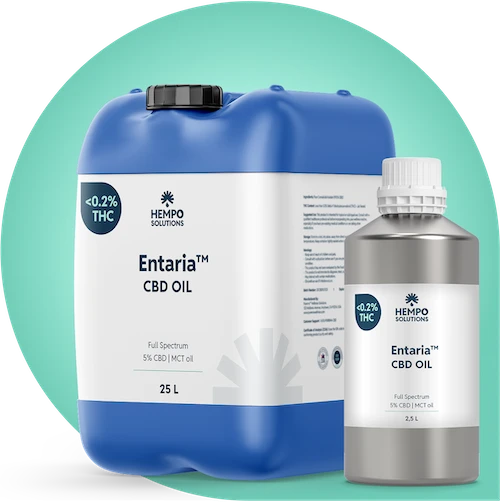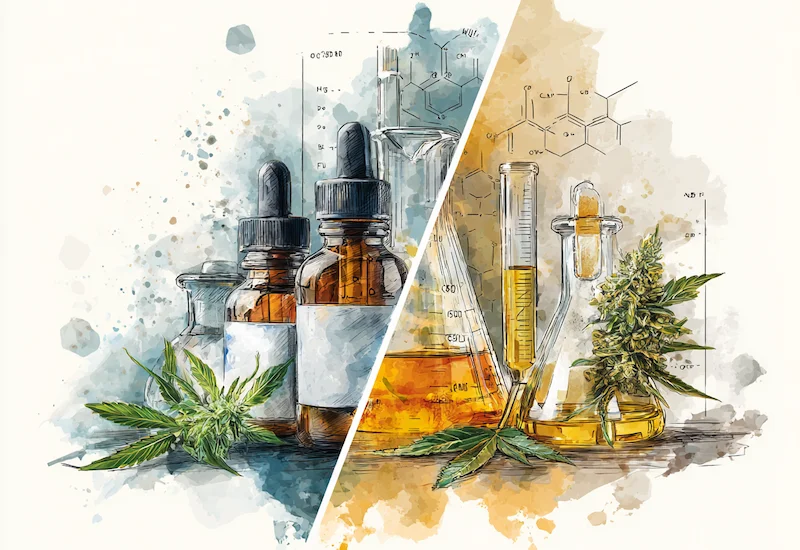Table of Contents
Current Legal Status of CBD in the UK
CBD is not classified as a controlled substance in the UK. However, its legality is tied closely to how much THC it contains and how the product is categorised. Under UK law:
- A CBD product must contain no more than 1 mg of THC per container, regardless of its size or concentration.
- It must be derived from EU-approved hemp strains.
- It must not contain controlled cannabinoids such as CBN, which remain illegal.
- If ingested, it must comply with novel food regulations enforced by the Food Standards Agency (FSA).
Unlike some countries that use a percentage-based THC threshold (e.g. 0.2%), the UK focuses on absolute content. This distinction has practical implications for formulation and packaging.
Which CBD Products Are Allowed in the UK?
The legality of CBD products depends on their format, how they are used, and whether they comply with specific sector regulations.
CBD Oils, Gummies, Capsules, Food & Drinks
CBD ingestibles are permitted but must be listed on the UK’s Novel Foods list. Products introduced after May 15, 1997, are considered “novel” and must undergo FSA assessment for safety, stability, and labelling accuracy.
CBD Cosmetics
Cosmetics containing CBD are allowed, provided they comply with cosmetic product regulations and do not contain any controlled cannabinoids. Products must meet safety assessments and be properly labelled with INCI ingredients.
CBD Vapes
CBD vape products are legal if marketed as non-nicotine consumer items and comply with General Product Safety Regulations. These products must not be promoted with medical claims and require proper safety documentation.
CBD Flowers (Buds)
The legal status of CBD flowers remains ambiguous. A 2023 Court of Appeal ruling offered some protection to businesses operating before 2021, but in general, selling CBD flower to consumers is not permitted. Extracts made from flowers are legal, but the raw form is still classified as a controlled material.
Hemp Seed Products
While CBD extracts require novel food authorisation, hemp seed-derived products such as oil, flour, or protein are exempt. As long as they are produced from certified EU-approved hemp seeds containing less than 0.2 % THC by weight, they are considered traditional foods and do not require novel food registration.
Regulatory Framework for CBD Products
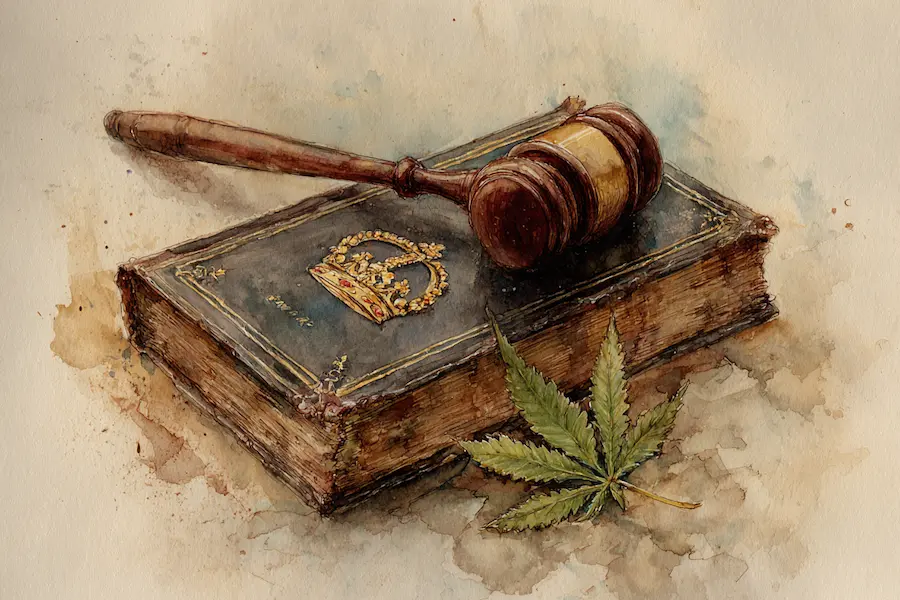
For a CBD product to be legally sold in the UK, it must satisfy several overlapping regulatory conditions:
CBD must come from industrial hemp strains approved by the EU. For ingestibles, compliance with the UK’s version of the novel food regulation is required. This means that CBD gummies, oils, drinks, and capsules must be authorised by the FSA or have a valid application in process.
Cosmetic CBD products must adhere to UK cosmetic laws and be free of controlled substances. Safety assessments, correct labelling, and product registration are required. Meanwhile, vape products must comply with general consumer product safety standards and cannot be marketed for therapeutic purposes unless licensed accordingly.
Misuse of Drugs Act – Exempt Product
Under the Misuse of Drugs Regulations 2001, a product containing up to 1 mg THC per container can qualify for “exempt product” status. This rule underpins the UK’s approach to THC limits in CBD products, aligning with controlled substance legislation rather than hemp percentage thresholds.
Medical vs Consumer CBD: Rules & Licensing
CBD products in the UK fall into two major categories, each with its own regulatory path.
Medical CBD
Medical-grade CBD products must be approved by the MHRA (Medicines and Healthcare products Regulatory Agency). One example is Sativex, a cannabis-derived prescription medicine used to treat MS-related symptoms. To bring a medical CBD product to market, businesses must apply for a marketing authorisation, a process that costs over £100,000 and involves stringent safety and quality testing.
Patients prescribed medical cannabis can register on the Cancard system, which allows them to possess and transport authorised cannabis-based products without fear of prosecution.
Consumer CBD
Consumer products, such as CBD oils, gummies, and topicals, are regulated as supplements or cosmetics. These cannot carry medical claims and must meet the following standards:
- THC content must be less than 1 mg per container.
- Products must be accurately labelled with cannabinoid content and ingredient lists.
- All ingestible products must comply with the UK’s novel food framework.
Import, Export & Brexit Impact
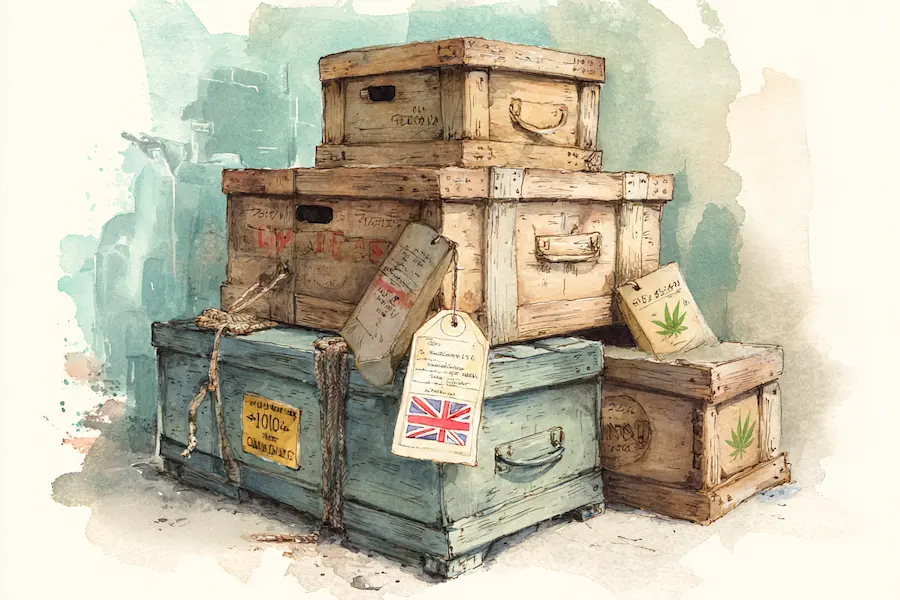
Despite leaving the EU, the UK still follows a modified version of the EU’s novel food regulation. However, unlike the EU, which has slowed enforcement, the UK continues to actively apply these standards. This divergence has created complications for businesses operating across borders.
Imports from EU countries are permitted if the products meet UK legal requirements. However, mutual recognition of novel food approvals no longer applies, meaning an EU-authorised product may still need a separate UK application. Businesses must also manage customs declarations, VAT, import licences, and ensure all documentation, including certificates of analysis, is valid and credible.
Additionally, brands need to manage customs declarations and VAT correctly – imports from EU countries are exempt from customs duty but still subject to standard VAT. Ensure thorough documentation is in place (e.g. certificates of analysis, novel food approvals and CPNP’s) to prevent delays or seizures at UK ports.
Compliance Tips for Retailers in UK
Here are some practical steps to ensure your CBD products remain compliant in the UK:
- Verify THC content is less than 1 mg per product container.
- Source only from EU-approved hemp strains.
- Ensure ingestible products are either on the FSA’s public list or have a valid novel food application in progress.
- Include clear, accurate labelling with dosage, ingredients, and usage instructions.
- Avoid any medical claims on consumer products.
- Always request third-party lab tests and certificates of analysis (COAs) from your supplier.
Future Trends in UK CBD Regulation
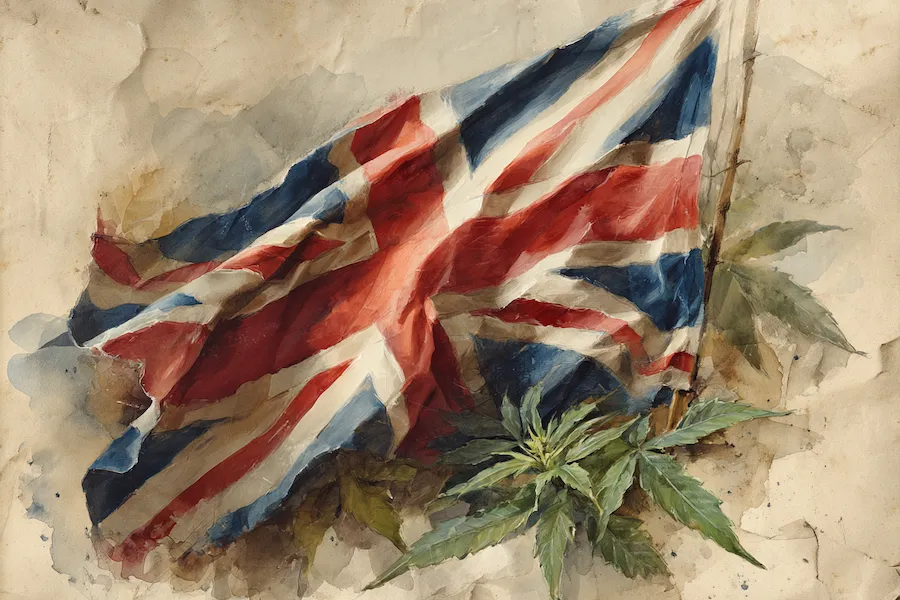
The UK CBD market is steadily growing, but the regulatory environment continues to evolve. Several trends are expected to shape the sector in coming years:
- More aggressive enforcement of novel food authorisation requirements.
- Potential revision of the 1 mg THC rule, which many consider outdated and ambiguous.
- Increased legal clarity around CBD flower and other borderline formats.
- A clearer regulatory distinction between CBD and controlled cannabinoids like CBN and THC-V.
Stakeholders are actively engaged in discussions with policymakers to modernise the framework and provide a fairer, more functional environment for compliant businesses.
Conclusion & UK CBD Opportunities
CBD remains legal in the UK in 2025, but only when products meet clearly defined criteria. Brands must follow strict limits on THC, comply with novel food or cosmetic regulations, and ensure accurate labelling. While the legal side can feel overwhelming, these rules are helping to raise standards in the industry and build lasting trust with both customers and regulators.
At Hempo Solutions, we work with CBD businesses to make sure their products are safe, compliant, and ready to sell. Our White-label CBD Products are fully tested and built on hands-on experience. Whether you’re entering the UK or scaling across Europe, our team is here to support you. Check out our country-specific guides or reach out to us for direct advice.
